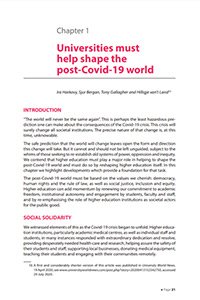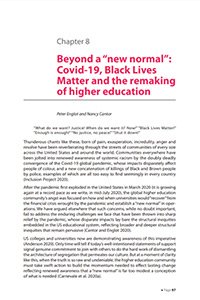Anchor Institutions Task Force (AITF)
Home > Initiatives > Anchor Institutions Task Force (AITF)
What Is The Anchor Institutions Task Force?
The Anchor Institutions Task Force (AITF) is an action-oriented learning community of nearly 1000 individual members in the U.S. and abroad. Founded in 2009, AITF emerged out of a national task force that was convened to advise the U.S. Department of Housing and Urban Development (HUD) on how it could increase its impact and strategically leverage anchor institutions, particularly higher education and medical institutions (“eds and meds”), to improve the economic, social and civic health needs of communities.
AITF functions as a think tank and movement-building organization working to deepen and extend the democratic engagement of anchor institutions in their neighborhoods, cities, and regions. Over time, AITF has continued to grow and to emphasize the importance of a cross-sector and collaborative anchor approach to meeting the needs of communities. Members of AITF represent anchor institutions from a range of fields including, education, economic development, health, and arts among others. All members share a deep commitment to the following values:
• Equity and Social Justice
• Democracy and Democratic Practice
• Place and Community
• Collaboration and Partnership
Since 2009, the AITF has hosted annual conferences, produced publications, organized webinars, created professional development affinity groups, and established international partnerships. AITF is an individual membership organization and individuals can join if they agree with AITF’s principles and values.
The general membership is free of charge.
To learn more about AITF contact us.
- More About AITF
- AITF Advisory Council
- AITF Subgroups
- AITF Policy Strategies
- AITF Resources
- AITF Conferences
- AITF News
- Archive
What is an Anchor Institution?
Anchor institutions are enduring organizations that are rooted in their localities. It is difficult for them to leave their surroundings even in the midst of substantial capital flight. The challenge to a growing movement is to encourage these stable local assets to harness their resources in order to address critical issues such as education, economic opportunity, and health. It is difficult to imagine fragile local economies and widening social disparities changing without leveraging stable institutions, especially amidst a decline in government resources. These dynamics have given rise to the concept “anchors” as agents of community and economic development.
What We Do
Engaging government and philanthropy, the Task Force is enhancing anchor institution practices by:
• Bringing together scholars, university presidents and other leaders in higher education, and practitioners;
• Increasing cooperation and alignment among government, anchor institutions, businesses, schools, community organizations and philanthropy;
• Developing strategies to promote interagency government collaboration;
• Providing tools for anchor institutions to enhance their societal missions, address local needs, as well as strengthen democratic, mutually beneficial partnerships between institutions of higher education, schools, and community based organizations;
• Providing tools for anchor institutions to help students develop as democratic citizens who are lifelong contributors to communities and the nation’s well-being.
• Complementing philanthropic strategies to support and strengthen vulnerable communities.
AITF Management and Administration
The Task Force is led initially by the University of Pennsylvania and administered by Marga Incorporated.
The University of Pennsylvania’s experiences in recent decades provide a persuasive case as to how an anchor institution can comprehensively contribute to a neighborhood and city, by tapping its intellectual, social, economic, human, and physical capital to transform its environment. Numerous lessons have been drawn from this story in the form of the Anchor Institutions Toolkit (Netter Center, 2009), which provides a useful guide for anchor institutions on how to simultaneously strengthen their purpose and surroundings and the results of a Penn-sponsored national conference, “Urban Anchors in the 21st Century: A Commitment to Place, Growth and Community” (October 2007). The Penn Institute for Urban Research, co-directed by Eugenie Birch and Susan Wachter, coordinated the development and publication of a series of task force reports titled Retooling HUD for a Catalytic Federal Government: A Report to Secretary Shaun Donovan, which included the “Anchor Institutions” report. Eugenie Birch was also the co-chair on the “Anchor Institutions Task Force” report. The Director of Penn’s Netter Center for Community Partnerships, Ira Harkavy, is the chair of the Task Force. Marga Incorporated is a consulting firm dedicated to strengthening partnerships and philanthropic initiatives through research and strategic guidance.



























